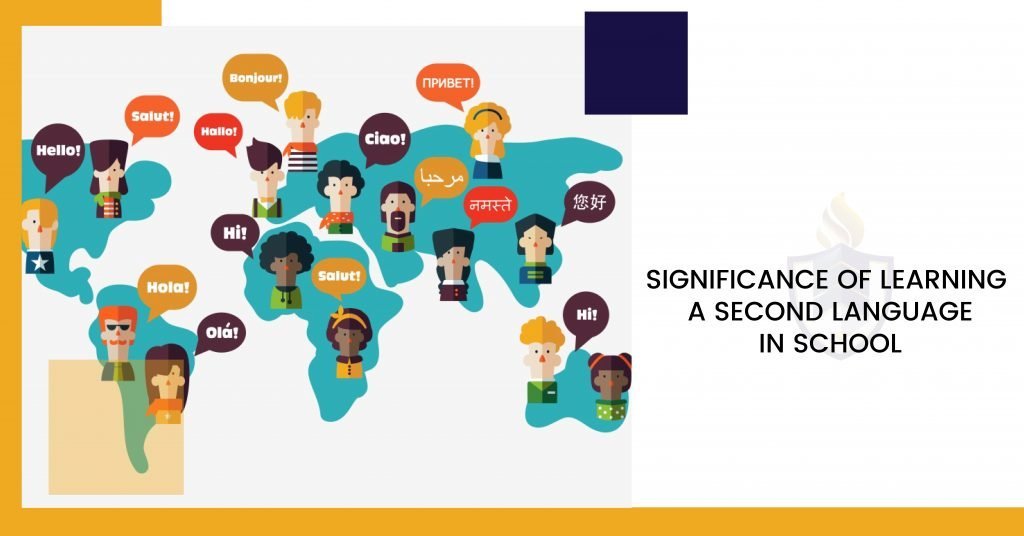One of the most practical ways to make use of your spare time nowadays is to start learning a new skill. People that always succeed are those that are keen to learn something new every day – be it learning about other cultures or learning a second language
We live in a multilingual world, where connections are now more important than ever. The world is becoming increasingly globalized and knowing a second language can always give you an unfair advantage.
There are tangible benefits to being bilingual:
It can help you in your career;
It can improve your memory and brain functions;
It can help increase your understanding of the languages you already speak.
A second language can drastically change your career. Living in an interconnected world means that more and more jobs are advertising positions where knowing more than one language is essential.
As more companies trade internationally and create relationships with other countries, employees are often asked to travel for work, enhance these relationships, or be relocated abroad.
Besides having more chances of landing a good job or advancing in your career, learning a second language can also give you an insight into other cultures. You will be more prepared and confident to travel the world and explore other people’s ways of living.
Lack of integration is a real problem for most countries. More often than not, this is due to the language barrier. People outside of their home countries end up being isolated, hanging out only with people from similar communities where their language is spoken.
Learning a second language opens up the opportunity for being part of a community with a different culture, and learning more about the world around us.
Did you know that being bilingual can also help you master your own language? For example, learning a new language with similar roots can help you learn other languages as well. Take Spanish, Italian, and French together!
What are the benefits of learning a second language:
As mentioned before, learning a new language is a wonderful benefit in a globalized world. Let’s have a look at some of the benefits of learning a second language.
It improves your memory:
The more you use your brain to learn new skills, the more your brain’s functions work. Learning a new language pushes your brain to get familiar with new grammar and vocabulary rules. It allows you to train your memory to remember new words, make connections between them, and use them in contextual situations.
Enhances your ability to multitask:
Time management and multitasking are two skills that will always help you. Multilingual people have the ability to switch between languages. Their ability to think in different languages and be able to communicate in more than one language helps with multitasking.
Improves your performance in other academic areas:
Fully immersing yourself in a language learning environment means not only learning the basics of that language. It means learning how to communicate in another language with your peers or participating in extracurricular activities in that specific language.
The many cognitive benefits of learning languages are undeniable. People who speak more than one language have improved memory, problem-solving and critical-thinking skills, enhanced concentration, and ability to multitask, and better listening skills.
Language is the most direct connection to other cultures. Being able to communicate in another language exposes us to and fosters an appreciation for the traditions, religions, arts, and history of the people associated with that language. Greater understanding, in turn, promotes greater tolerance, empathy, and acceptance of others—with studies showing that children who have studied another language are more open toward and express more positive attitudes toward the culture associated with that language.
Learning a second language improve communication skills and multiply vocabulary in your first language—yes, really!—but research shows that it makes picking up additional languages a much easier feat, especially among children.3 That’s because when you learn a new language, you develop new brain networks that are primed and ready when you embark on learning a third language.
Language skills can be a significant competitive advantage that sets you apart from your monolingual peers. They are among the top eight skills required of all occupations—no matter your s One of the most rewarding aspects of the human experience is our ability to connect with others. Being able to communicate with someone in his or her language is an incredible gift. Bilinguals have the unique opportunity to communicate with a wider range of people in their personal and professional lives. Knowing the language makes you a local no matter where you are, opening up your world literally and figuratively. You will be shaped by communities. You will be humbled by the kindness of strangers. You will build lifelong friendships. And for these reasons alone, you will see the reward of learning languages for many years to come sector or skill level—and the demand for bilingual professionals is rising exponentially.
Thinking critically will boost creativity and enhance the way you use and manage your time (Hader, 2005) and critical thinking not only describes the ability to think in accordance with the rules of logic and probability, but also the ability to apply these skills to real-life problems, which are not content-independent. Critical thinking can provide you with a more insightful understanding of yourself. It will offer you an opportunity to be objective, less emotional, and more open-minded as you appreciate others’ views and opinions. By thinking ahead, you will gain the confidence to present fresh p

Dr. Mamta Singh
B.A | B.Ed | M.A | Persuing M.Ed
School Principal at Rahul Education, Queen Mary’s High School
FAQS
Besides having more chances of landing a good job or advancing in your career, learning a second language can also give you an insight into other cultures. Learning a second language opens up the opportunity for being part of a community with a different culture, and learning more about the world around us.
Learning a new language presents an opportunity to push yourself. It makes you realize you’re capable of achieving more than you thought. Starting may be difficult, but as you set and reach goals, your confidence improves.
Speakers of the two languages put different emphasis on actions and their consequences, influencing the way they think about the world, according to a new study. The work also finds that bilinguals may get the best of both worldviews, as their thinking can be more flexible.
Language is such a power concept because it has the ability to completely shape one’s personal Identity. The usage of words and phrases significantly impacts individuals’ thoughts and character/personal identity. One of the major elements of language that initiates the development of self-identity would be the dialect.
The five main components of language are phonemes, morphemes, lexemes, syntax, and context. Along with grammar, semantics, and pragmatics, these components work together to create meaningful communication among individuals.
The many cognitive benefits of learning languages are undeniable. People who speak more than one language have improved memory, problem-solving and critical-thinking skills, enhanced concentration, ability to multitask, and better listening skills.
The language we speak can be used to pass on knowledge and values that exist within our community, but it also influences to some extent how we know. Through language you can influence and shape thought. You may subconsciously alter the way people speak and think.
There are two ways that children learn a second language – simultaneously or sequentially. They may be exposed to two languages at home due to each parent speaking a different language or they gain exposure to one language at home and one language at their day care or early childhood program.


